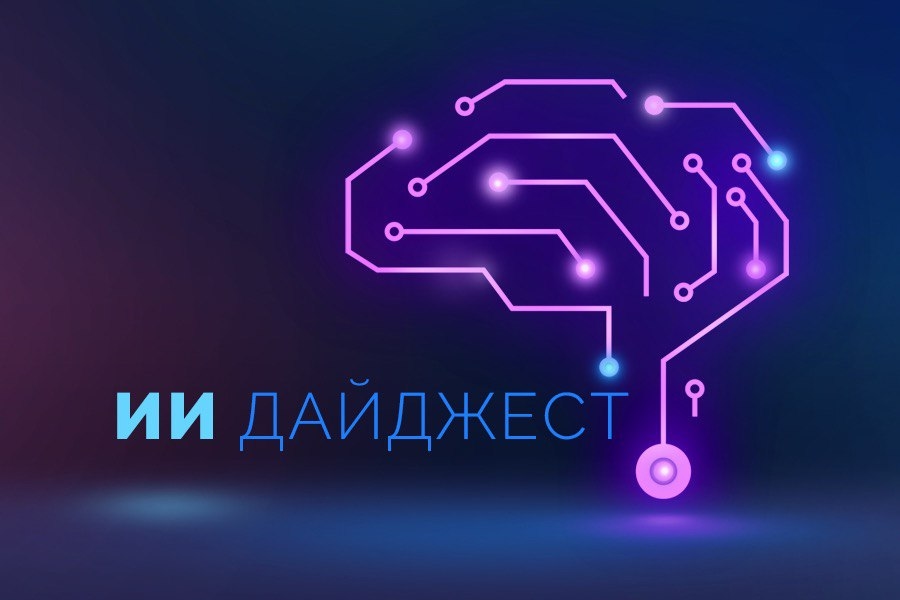AI in Healthcare. Vademecum Digest, November 3–8, 2025

The Russian Ministry of Health summarized the results of AI implementation in healthcare for 2019–2024.
The journal "National Health" published a review of the development of artificial intelligence technologies in Russian medicine from 2019 to 2024, prepared by Health Minister Mikhail Murashko and his colleagues. During this period, 215 projects were implemented at the Ministry of Health's research centers, 22 market regulation standards were approved, and total investment in the sector reached 4.7 billion rubles, of which 1.8 billion rubles were allocated by Moscow for an experiment in implementing computer vision technologies. The final section of the review is devoted to the industry's prospects: the next stage of development is identified as multimodal and language models that can act as digital assistants and support medical and management decisions.
Tricolor will launch a telemedicine service with neural network modules.
Tricolor has unveiled a new service, "Tricolor Health," which combines telemedicine and AI technologies. The platform will allow users to receive online consultations with doctors, track their measurements, monitor their health, and receive recommendations for physical and mental well-being. In the next phase, the project will be expanded with three neural network modules: "AI-Dermatology" for early detection of skin diseases, "AI-Psychologist" for emotional support, and "AI-Biomarkers" for health analysis based on video selfies.
Sechenov University has created an AI assistant to prepare medical professionals for accreditation.
Sechenov University specialists have developed a digital assistant, "InfoMedica AI," designed to train and prepare doctors for accreditation. The AI-powered system analyzes clinical cases and generates detailed responses with diagnoses, diagnostic and treatment plans, and patient recommendations, citing relevant sources from the university's Accreditation Library. Initially, the project will be implemented for specialists in cardiology, pulmonology, and urology, after which the neural network will be adapted for other medical fields.
International agendaMicrosoft is creating a team to develop medical " superintelligence "
Microsoft is creating a new division, the MAI Superintelligence Team, to develop specialized AI systems capable of outperforming humans in specific professional fields, starting with medical diagnostics. Microsoft AI leader Mustafa Suleiman announced that the company is investing significantly and attracting leading researchers, including Karen Simonyan, formerly of DeepMind. The project aims to create so-called medical superintelligence—safe and highly specialized AI models that can speed up diagnoses, assist doctors in decision-making, and improve the accuracy of clinical data.
An "AI judge" has been created in the US to review clinical texts.
Researchers from the University of Wisconsin (USA) have developed an "AI Judge" system for automatically checking the quality of medical texts generated by neural networks. The new approach allows for the assessment of the accuracy, completeness, and consistency of clinical summaries without the need for human experts, reducing analysis time from 10 minutes to 22 seconds. The GPT-o3-mini model demonstrated the best results, with an 82% agreement with expert assessments. The developers believe this technology will simplify medical documentation quality control and, in the future, will enable the unification of text creation and validation within a single AI system.
ResearchAI has learned to detect Parkinson's disease with 94% accuracy.
A team of researchers from India and the United States has developed an AI-powered web platform for the early and accurate diagnosis of Parkinson's disease. The system combines MRI, SPECT, cerebrospinal fluid biomarkers, and clinical parameters, identifying the disease with 93.7% accuracy, exceeding the capabilities of traditional methods. The model, built on a neural network and the multimodal GPT-4o mini, not only analyzes images and biochemical parameters but also explains the diagnostic logic to doctors. The developers note that this technology can aid in early detection, treatment selection, and patient monitoring.
American researchers have tested a safe AI format for medical education.
Researchers from Dartmouth Medical School (USA) tested an artificial intelligence-based learning format based on search augmentation technology (RAG), which selects answers exclusively from verified educational materials. This system, dubbed NeuroBot TA, was used by over 180 medical students and demonstrated a high level of accuracy and personalization of learning. The AI helped them understand topics in neuroanatomy, physiology, and clinical syndromes, becoming especially useful during the pre-exam period. The authors note that limiting sources reduces the volume of information but increases its reliability, making RAG models a promising basis for "precision medical education," where AI adapts to the individual needs of students.
vademec





